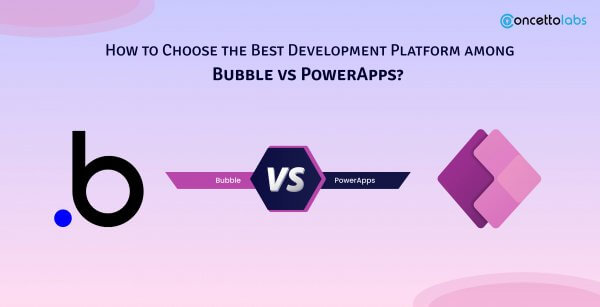Summary: AI is a game-changer in the banking sector by making customer satisfaction better, identifying potential fraud, and making business operations efficient. Apps such as chatbots and robo-advisors implement personalized services in banking thus making the process secure and efficient. This integration makes it possible to herald smarter future financial prospects. The term, artificial intelligence, […]
Java vs .Net: Choose Your Best Pick for Android App Development
![]() By Tejas Patel | Monday, January 30, 2023 11:19 AM | 9 min read | 1514
By Tejas Patel | Monday, January 30, 2023 11:19 AM | 9 min read | 1514
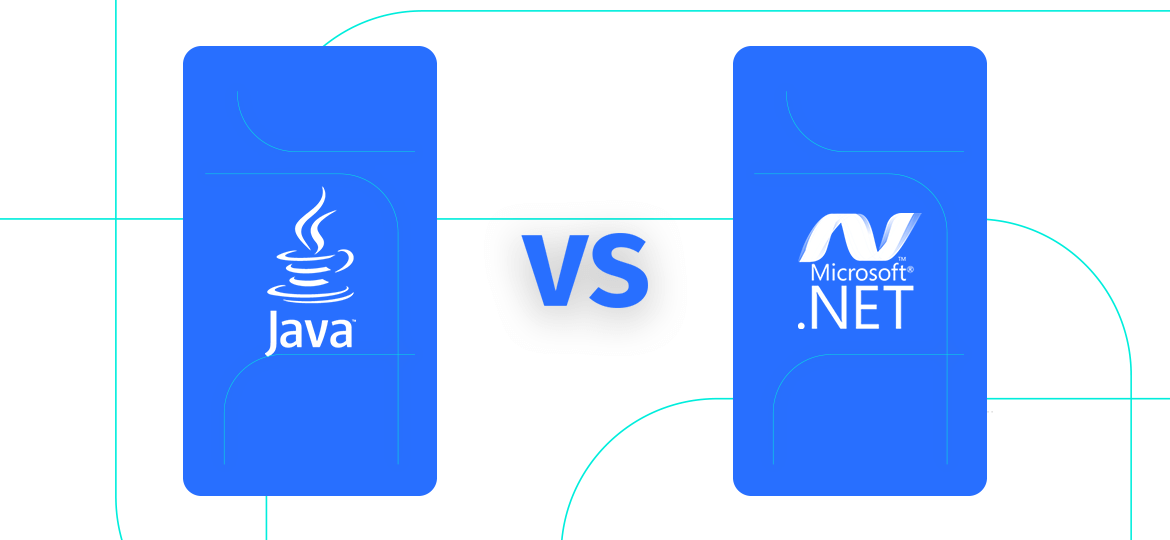
Table of Contents
With time, Java and .NET have become two competitors in making the best of enterprise-level applications. ASP.NET is a great open-source framework that can be used to create robust web applications, Web APIs, and more using HTML, CSS and JavaScript too. However, there are still some points that will make you choose between .NET and Java. So, here is a detailed comparison and information on both the frameworks to decide which one is better to go with.
Though the primary approach of any android app development company is simply downloading Android SDK and start writing apps with Java; in such scenario; asp.net can be an easy catch to go with.
What is .NET?
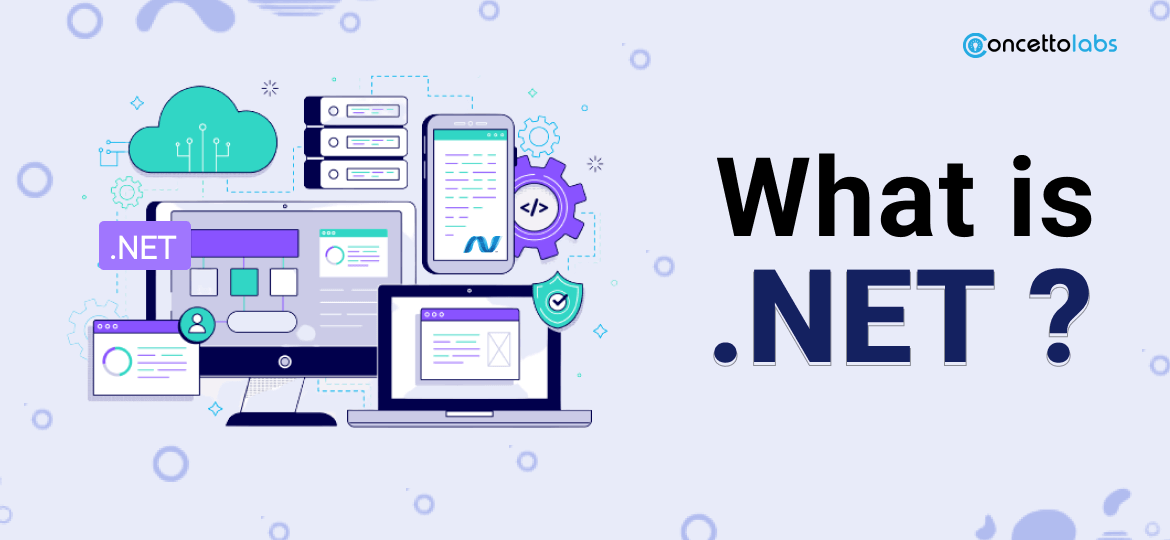
.NET is an open-source development framework that was developed earlier only to make Microsoft applications that will run on devices with Microsoft only which means it cannot be run on Android, iOS or any other platform. It used to be a closed-source framework. But in 2016, .NET core was introduced which can be used to develop cross-platform as well as web applications. It became a competitor for Java and started to be used by big companies.
.NET Framework Statistics
- .NET is used by most fortune 500 companies as more than 34% of websites and web apps are build with .NET framework
- According to Stack Overflow 2019 Survey, .NET core is recognized to be a most-loved non-web framework
- It is observed that more than 90% of PCs have one or the other version of .NET framework installed
What is Java?

Java is a popular programming language for coding mobile and web application development. It is high-level, cross-platform, object-oriented and one of the most user-friendly languages. Though complicated to develop and found for a long time, Java is extremely fast, secure, and reliable for coding different types of applications, even for IoT and AI.
Java Statistics
- In 2022, more than 65% of software developers reported using JavaScript as a programming language
- Java is used by more than 900,000 websites in USA
- Java secures 2nd position as the most used programming language
- Most companies using Java earn 1M to 10M dollars of revenue
Java for Android App
A lot of programmers still prefer Java, but more and more businesses and development agencies are on the lookout for asp.net development in India, and android app development.
Android programming is somewhat different from traditional Java programming. It is possible to develop C and C++ apps with the help of the Android Native Development Kit.
According to the experts in the field, the Java files conversion into bytecodes is the same as compiling an Android app. The byte code is the key here and makes for the complete running of the app on the device. As soon as the bytecode is installed on the machine, it is optimized into machine code for Android devices. This also improves the runtime performance of the app.
The process is also known as Ahead of Time compilation (AoT) and is enabled by the Android Runtime (ART) virtual machine.
.Net for Android app development
.net mobile app development as well as asp.net web development has been pretty popular in the industry. Companies are looking to hire asp.net programmers all across the world. Businesses looking for efficient android apps are also on the lookout for a reliable asp.net development company.
The asp.net development of android apps works through the use of Xamarin Studio IDE. It is a MonoDroid/MonoDevelop platform from Xamarin. Such android applications are executed through the mono-based virtual computer.
There are segments of classes that can be used to access native Android functionalities that appear like classes in the .NET Framework. A major difference can be that they bind to the android API under the hood.
Pros and Cons
.NET Pros and Cons
Pros |
Cons |
| Object-Oriented Programming:
OOP divides a software into smaller objects which help to focus better and work easily on different parts of a software. |
Licensing Cost:
Using .NET can be costly as it involves a licensing fee for a year. For instance, Visual Studio alone costs $539 a year. |
| Visual Studio IDE .NET uses Visual Studio as Integrated Development Environment which helps to develop all the applications in one place for multiple platforms including Android and iOS. |
Stability Issues: With .NET, every new update release, there is a lack of new documents and support needed which can hurt the stability of applications. |
| Caching is Simple:
With extremely simple caching system, .NET enhances performance of both client and server side applications. |
Object-Relational Programming issues:
As .NET runs entirely on data-oriented application development, some issues still challenge the flexibility to work with new features and designs. |
| Cross-platform Development:
Though earlier, .NET was made to develop application only for windows, it now allows cross-platform development for multiple operating systems. |
Memory Leaks:
Though .NET has a garbage collector for managing memory, it is infamous for memory leaks. Hence, extra care needs to be taken. |
| Easy Deployment: .NET allows developers to work on multiple applications on different devices, fix it and then put it together, making the deployment easier. |
Java Pros and Cons
Pros |
Cons |
| Simple:
Java is simple, easy to learn and understand language. It does not have the complex codes of C and C++ which makes is convenient for coding. |
Poor Performance:
With advanced functions, comes heavy load in Java that drags it slower. The auto garbage collections runs continuously in the background, also Java takes a lot of memory space, lowering the application’s performance. |
| Object-oriented:
With Java, OOP makes programming easier by dividing procedural programming into groups and creating functions for each object |
Poor GUI:
Java’s GUI frameworks, such as Swing, SWT, JavaFX, and JSF, are not advanced enough to handle the creation of complex user interfaces. In comparison, languages like Python, R, and C# have more robust GUI builders. |
| Secure:
As Java doesn’t use pointers like C and C++, the memory access is prohibited and OOPs also plays an important role to limit memory access to the users. |
No Backup facility:
Java, no doubt stores the data in the best way but it doesn’t have facility to take the backup of users’ data. |
| Platform-Independency:
The code written once in Java can be implemented anywhere i.e. in any OS or hardware. It follows “Write Once Run Anywhere” rule. Hence, Java saves time |
High memory space needed: Java requires a high amount of memory space as it stores a lot of data and also the efficient of automatic garbage collectors is low. |
| Multithreading:
A thread consists of the tiniest unit of processing. Java has the ability to run multiple threads like this, hence utilizing the CPU time to its maximum, that too optimally. |
Complex coding: Java is infamous for its long-form, complex coding structures. It has syntaxes that are much more hard to use than Python or C++. Hence, programmers like other languages more. |
| Efficient Memory Management:
In Java, unlike other programming languages, unnecessary data is deleted automatically and there is no need to create extra memory space. Java removes the data, not in use and adjusts the given data in the memory space |
Paid Commercial License: In January 2019, Java started to charge a fee for the commercial license of Java 11 and higher versions. This makes it a little less preferable but advanced features of Java need a fee to be used. |
Similarities of .NET Vs Java
- Blends well with other languages
Java works well with Kotlin, Scala, Clojure, and Groovy while .NET is nicely compatible with Visual Basic, C#, F#.
- Have their own IDE
.NET and Java both have their own Integrated Development Environments. .NET uses Visual Studio as its IDE while Java has four of them, namely, Eclipse, Intellij IDEA, Oracle Netbeans, and Oracle JDeveloper.
- Can be migrated
Java can be migrated among different java platforms while dot net programming language can also run on various Windows operating systems.
- Can handle heavy applications
Both .NET and Java are compatible for heavy applications. They can handle heavy data systems and enterprise-level projects.

Usage Statistics
- The server-side programming language used by websites was 7.3% of ASP.NET and 4.6% of Java.
- The market position of Java was better than ASP.NET as observed on 19th Jan, 2023. More websites with high traffic are using Java.
Difference Between .NET and Java – A Comparison Table
Factors |
.NET |
Java |
| Developer | Microsoft | Sun Microsystems |
| Stable Version | .NET 7.0 | Java 17 LTS |
| File Extension | .net | java |
| Efficiency | Java code runs only after its execution | .NET compiles and runs the code simultaneously where the code is initiated |
| Server Components | .NET, COM + Serviced | EJBs |
| GUI Components | .NET Class | Java Beans |
| Languages | Supports 20 languages including C#, F#, C++, PHP, Ruby and more | Java has its own programming language and doesn’t support any other languages |
| Runtime | CLR (Common Language Runtime) | JVM (Java Virtual Machine) |
| Platform | .NET, ,NET Core, ASP.NET, ASP.NET Core, Silver Light | Java SE, Java EE, Java ME |
| Data Access | ADO.NET/OleDB | JDBC |
| Exception Handling | Easy | Hard |
| Remoting | We3b Services (SOAP), Rest API, OpenAPI, GraphQL, DCOM | We3b Services (SOAP), Rest API, OpenAPI, GraphQL, RMI, CORBA (IIOP) |
| Web Services Support | Built-In | Built-In, JAX-WS |
| Web Service Scripting | ASP.NET | JSF |
| Unit Testing | Microsoft Unit Testing Framework, JUnit | JUnit |
| HTTP Engine | IIS | Application servers from multiple vendors Glassfish, Tomcat & more |
.NET Versus Java: A Detailed Comparison
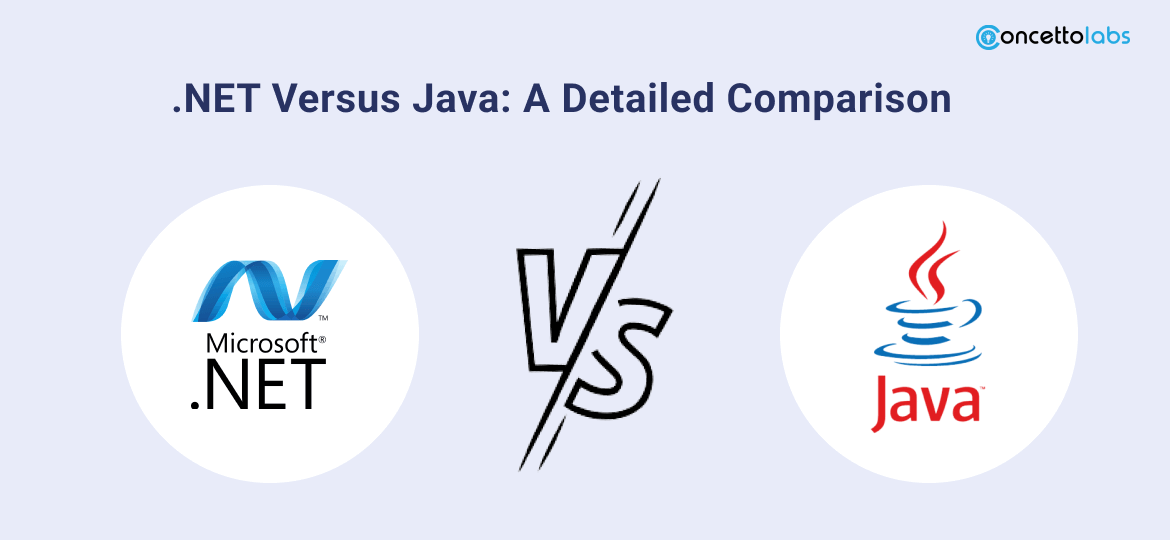
1. Operating system
The compatibility with the operating system creates a major difference between .NET framework and Java. .NET, which can only be run on windows or different versions. Recently .NET’s updated version can be run on macOS and Linux, but its main focus is only on Windows users.
While Java is “Write Once, Run Anywhere” principle oriented. Java technologies work smoothly with any operating system with the help of its compilers and JRE (Java Runtime Environment). This is why java is better than .NET.
2. IDE
The Integrated Development Environment of a framework or language gives you all the required tools to build and test software applications.
These both consist of their own IDEs but .NET has only one named Visual Studio while Java comprises of four IDEs i.e. Oracle JDeveloper, Oracle NetBeans, Eclipse, and IntelliJ Idea.
3. Support for languages
Both Java and .NET support majorly lesser-known languages. Java can work with JavaScript, Groovy, Clojure, Kotlin and J2EE framework takes Java by default.
While .NET supports F#, C#, C++, VB.NET. Of these, .NET gets more flexibility and compatibility with F# and C#.
4. Performance
Java gives lesser performance than .NET because it consumes more memory and has more complex and verbose coding, which hampers the smooth performance of Java applications.
On the other hand, .NET’s syntax uses a compilation of languages C# and C++ which makes it code shorter. It also consumes much less memory space. Lesser code makes maintenance easy and also boosts performance. Hence, in terms of performance, .NET surpasses Java.
Ready to Build Your Android App? Tell Us Your Idea Now
5. Coding Speed
Since .NET programming language uses less code than Java and has object-oriented programming, allowing it to use the same components again when needed, .NET wins the game here. Hence, .NET takes much less time to code an application than Java. However, it depends a lot on the knowledge dedicated java programmer & developer you hire to make applications faster.
6. Scalability
.NET and Java are both designed to handle more robust, complex, enterprise-level applications. They both are stable enough to maintain the scalability of bigger projects. However, introducing updates in .NET might create stability issues because of a lack of support documents.
7. Learning Curve
Both languages are easy to understand and learn. However, comparatively, Java becomes a bit trickier and hard to grasp due to its extensive documentation and complex coding structure. Also, Java has more resources and can take time to learn fully.
8. Security
In terms of security, both Java and .NET are extremely secure. They both go through a process of code signing and deploying a sandbox execution. This makes both of their security systems similar. Java faced some security issues but solved it soon and is now a secure platform to work on.
.NET is now an open-source framework which is less secure than when it used to be a closed-source framework. However, .NET has kept it secure even now, when it’s open-source.
9. Licensing
Both frameworks are kind of free to use. In .NET there are no licensing charges to use its advanced features, libraries, and compilers, but its IDE costs more than 500 bucks a year.
Java is also a free-to-use language up to Java 10. Since January 2019, a commercial fee has been charged for using Java 11 and higher versions.
Are You Confused about What Next Steps To Take For Developing Your Next Project? Consult Our Experts
When to Use .NET?
.NET is majorly used to create applications Windows operating system, but with .NET core, cross-platform applications can also be created for mobile, laptops, tablets as well as desktops. It can be used to build heavy applications that needs to be integrated with Microsoft and also for game applications for Windows.
Popular Companies Using .NET Applications
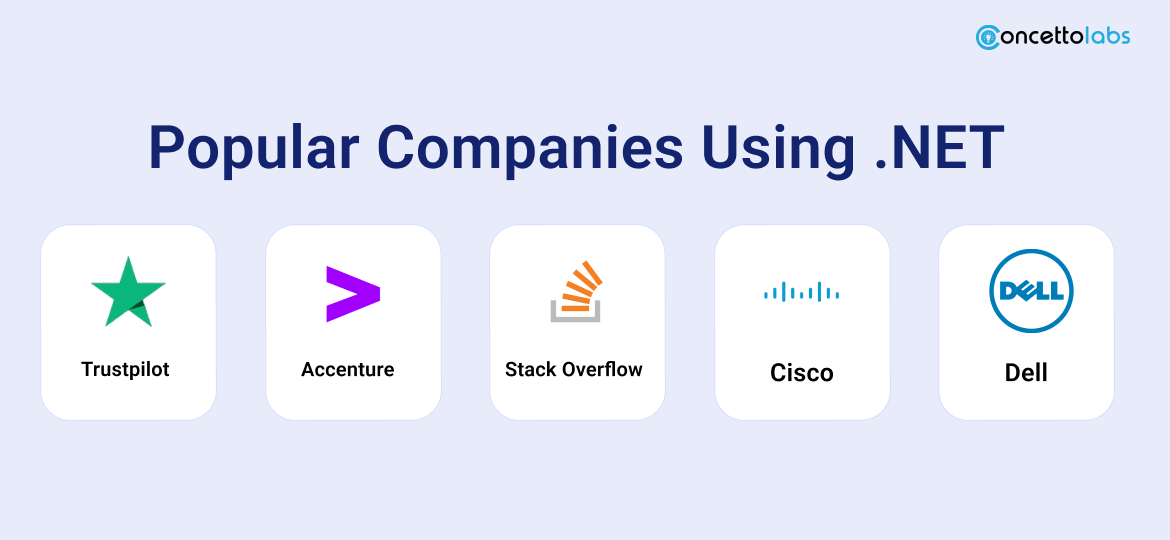
When to Use Java?
Since Java needs to write only one code for creating cross-platform applications, it can be used in big data and mobile programming to create robust back-end applications, gaming applications, etc. Java is mostly used to work on server-side applications as it is highly scalable and has an easy maintenance system.
Popular Companies Using Java Applications
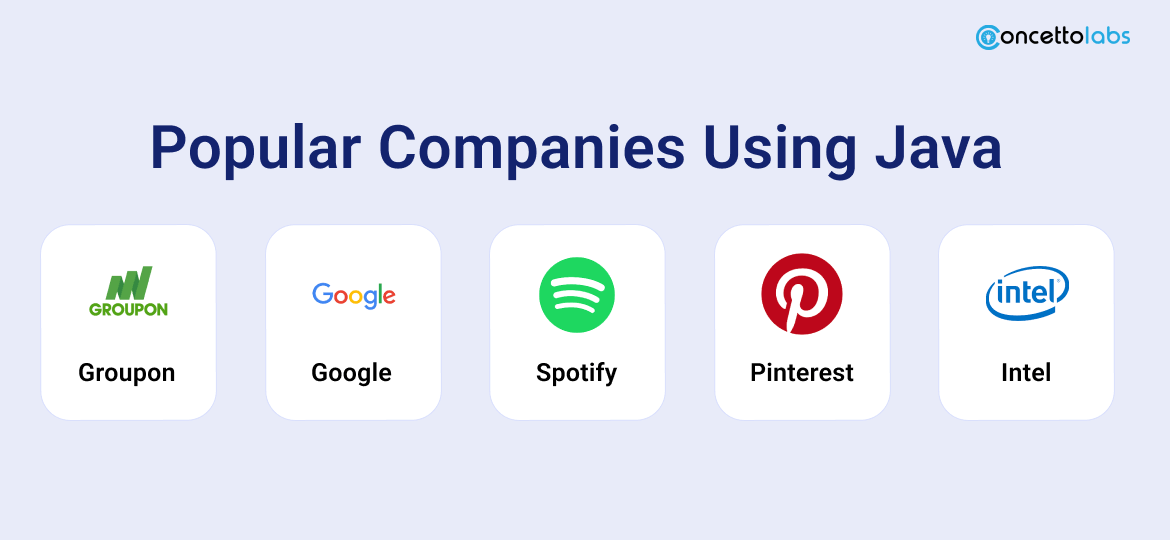
Final Words
As it is clearly seen, the .net framework is much more versatile and dynamic and supports various development procedures, including asp.net mobile development, asp.net MVC development, asp.net MVC game development, and asp.net core development.
Programmers have more widely used Java, but in modern times, asp.net programmers are in huge demand by various asp.net development companies.
While that is said, you need to decide which is more suitable for your specific needs, and likewise, you can hire asp.net developer or another asp.net development company for .Net framework-based development.
Table of Contents

